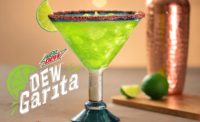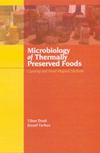Hong Kong Releases Study of Microbiological Quality in Non-prepackaged Beverages

About 200 samples of NPB were collected, and they all passed the microbiological tests. However, the hygienic quality of 15 samples needs improvement.
The food trade is urged to avoid over-production of food ingredients or prolonged storage of prepared and ready-to-eat ingredients at ambient temperature.
In recent years, the number of takeaway beverage shops selling NPB in Hong Kong has increased. Some of these NPB are mixed or topped with different solid ingredients such as pearl tapioca, jelly, aloe vera, fruit and red beans. These NPB may have variable microbiological quality as the additional ingredients may be prepared in advance and processed manually.
"In view of this, CFS obtained a total of 198 samples of NPB mixed or topped with different solid ingredients from a variety of food premises throughout Hong Kong between July and October last year. Laboratory analysis for five microbiological parameters, namely aerobic colony count (ACC), Escherichia coli (E. coli), Clostridium perfringens (C. perfringens), Salmonella spp ., and Staphylococcus aureus (S. aureus) count were conducted by the Centre for Health Protection, Department of Health," a CFS spokesman said.
"Results showed that all the 198 NPB samples had E. coli and C. perfringens counts less than 20 colony-forming units per gram (cfu/g) while none were found to contain Salmonella spp. All results were satisfactory, according to the Microbiological Guidelines for Ready-to-eat Food issued by CFS."
"As regards S. aureus, one pineapple punch sample was detected with 30 cfu/g, within the acceptable range in microbiological quality. Test results of all other samples were satisfactory," he added.
ACC, a count of bacteria covering those naturally occurring in most foods and those caused by contamination, is likely to be high in fresh fruit or vegetables. Therefore, the ACC assessment is not applicable to 53 NPB samples containing fresh fruit or vegetable ingredients.
"Out of the 145 NPB samples where ACC assessment applied, the count in about 90 per cent of them (i.e. 130 samples) was less than 100,000 cfu/g. The results were either satisfactory or acceptable. The ACC in the remaining 15 NPB samples was more than 100,000 cfu/g, which indicated a sub-optimal hygienic condition and required improvement," the spokesman said.
He stressed that according to the test results, consumption of the above NPB samples would not pose a potential hazard to human health.
"Further analysis on the 15 samples with undesirable hygienic quality showed that those NPB samples containing dairy ingredients or red/green beans were more likely to have excessive ACC. It is believed that prolonged storage of the prepared ingredients at ambient temperature might have resulted in their unsatisfactory microbiological quality," he said.
To enhance food safety, the spokesman reminded the food trade to store drink mixes and beverage ingredients carefully, preferably in containers with lids and away from non-ready-to-eat food at safe temperatures -- at four degree Celsius or below for perishable items such as fresh ingredients, and at minus 18 degree Celsius or below for frozen items.
The food trade was also advised to carefully estimate demand of the food ingredients in preparing beverages to avoid over-production or prolonged storage of ingredients which have been cooked or prepared.
Food handlers should observe good personal and food hygiene, wear disposable gloves when handling ready-to-eat food including ingredients for NPB, and clean and sanitize all utensils and equipment regularly including tongs and packaging machines.
To help the food trade implement food safety measures in their operations so as to produce wholesome and hygienic NPB, CFS has drafted a set of "Trade Guidelines on Safe Production of Non-prepackaged Beverages." After consultation with the trade, the Guidelines will be uploaded to the CFS website and distributed to the trade for reference.
The spokesman also reminded consumers to patronize reliable and licensed food premises, and consume NPB as soon as possible after purchase.
Details of the risk assessment study are available on the CFS website www.cfs.gov.hk .
From the September 30, 2011, Prepared Foods' Daily News.
Looking for a reprint of this article?
From high-res PDFs to custom plaques, order your copy today!







